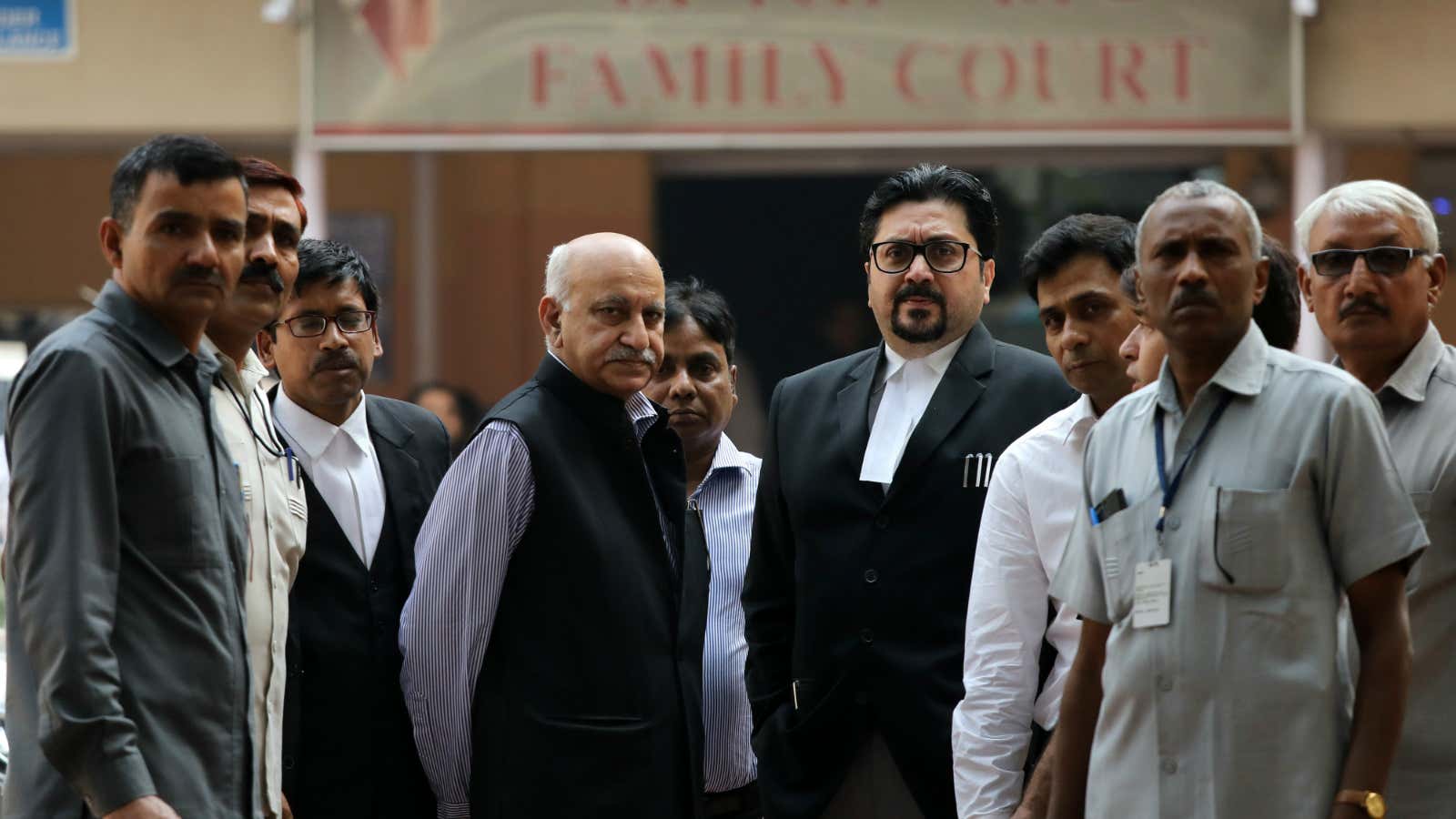A former colleague has accused MJ Akbar, who recently resigned as Indian minister of state for external affairs, of raping her.
In a piece published yesterday (Nov. 01) in the Washington Post, Pallavi Gogoi, chief business editor of the American media organisation NPR, detailed several specific instances in which Akbar allegedly assaulted her. Her account narrates instances beginning from 1994, when she was 23 years old and working as the op-ed editor at the Asian Age, a paper Akbar founded and of which he was editor-in-chief.
The Washington Post included the response of Akbar’s lawyer Sandeep Kapur to the allegations:
“My client states that these [incidents and allegations] are false and expressly denied.”
Update: In a statement, Akbar further denied the allegation of rape, and insisted that he had had a consensual relationship with Gogoi. “Somewhere around 1994, Ms Pallavi Gogoi and I entered into a consensual relationship that spanned several months,” he said, “This relationship gave rise to talk and would later cause significant strife in my home life as well. This consensual relationship ended, perhaps not on the best note.”
Gogoi’s account comes two weeks after Akbar quit the Indian government after having filed a defamation case against journalist Priya Ramani, the first of over a dozen women to publicly accuse him of sexual misbehaviour, harassment, and assault.
The first incident Gogoi describes took place at the Asian Age, when she went into Akbar’s office to show him the op-ed page she had created. “He applauded my effort and suddenly lunged to kiss me. I reeled. I emerged from the office, red-faced, confused, ashamed, destroyed,” she writes.
The second incident took place “a few months later” in Akbar’s Mumbai hotel room. “When he again came close to me to kiss me, I fought him and pushed him away. He scratched my face as I ran away, tears streaming down,” she writes.
The third incident Gogoi recounts is the most harrowing. She was on a reporting assignment in Jaipur, Rajasthan, when Akbar asked her to come discuss her story.
In his hotel room, even though I fought him, he was physically more powerful. He ripped off my clothes and raped me. Instead of reporting him to the police, I was filled with shame. I didn’t tell anyone about this then. Would anyone have believed me? I blamed myself. Why did I go to the hotel room?
For a few months after this incident, Gogoi writes, Akbar “continued to defile me sexually, verbally, emotionally. He would burst into loud rages in the newsroom if he saw me talking to male colleagues my own age.”
Gogoi writes that she tried to travel as much as possible on reporting even as Akbar offered to send her to the US and the UK. While she was initially thrilled because she thought Akbar’s advances would stop, “the truth was that he was sending me away so I could have no defenses and he could prey on me whenever he visited the city where I would be posted,” she writes.
In one such instance, in London, Gogoi alleges that Akbar had seen her speaking in a friendly way to a male colleague. After her coworkers had left the office that night, she writes,
[H]e hit me and went on a rampage, throwing things from the desk at me — a pair of scissors, a paperweight, whatever he could get his hands on. I ran away from the office and hid in Hyde Park for an hour.
After this, Gogoi went to the US as a foreign correspondent, despite Akbar’s demand that she return to Bombay. She worked in various jobs in US journalism to finally become a chief editor at NPR.
“I am writing this for my teenage daughter and son. So they know to fight back when anyone victimizes them,” Gogoi writes in the conclusion to her article. “I have risen from those dark times, refusing to let them define me, and I will continue to move forward.”
